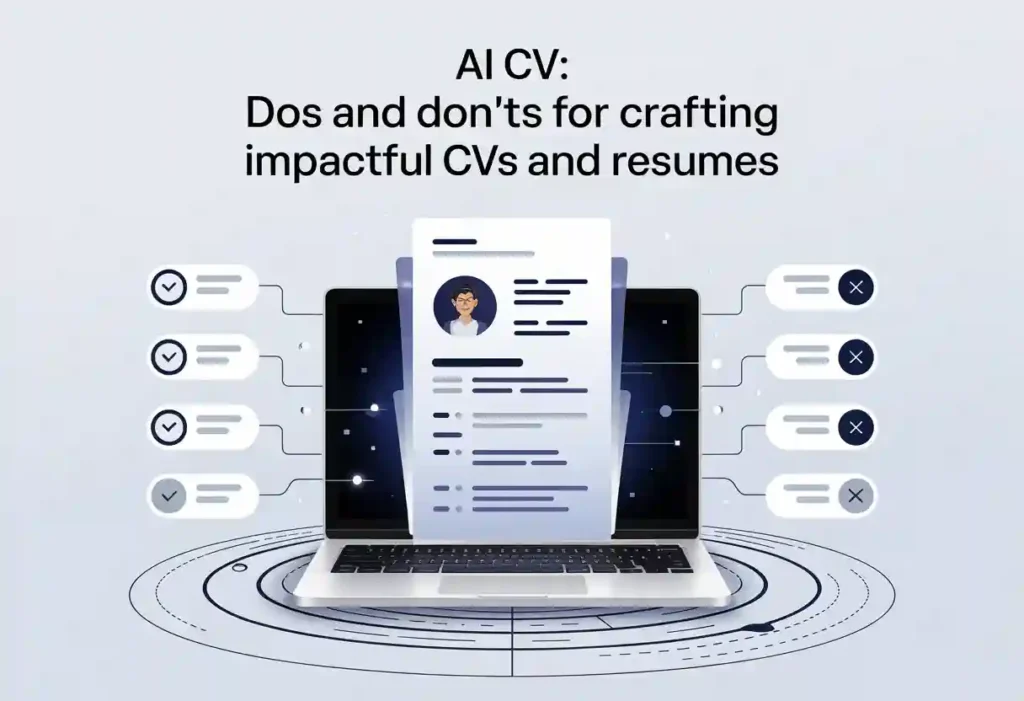How to Find a Good Job: 11 Strategies for Success
1. Do your research on the company you’re interested in
Start by looking at the company’s website and see how they describe what makes them unique on their ‘about us’ page.
The best way to learn about a company is by talking with someone who has worked there.
Or get in touch with an employee of that particular organization.
If you’re unsure how to approach a person, go ahead and search for senior staff on LinkedIn or similar platforms to network with.
2. Look for companies with a good reputation and growth
For some people, this is enough to determine whether a company is worth applying for.
Do you want more specific information about how the company treats its workers or how it approaches benefits and bonuses?
It’s essential to look at reviews from current or past employees.
Or if you know someone who works there, ask them.
3. What kind of work environment do you want to be in?
What kind of people do you want to work with?
Finding a job (and career) that suits your skills and personality is essential.
What kind of companies are you looking for?
In general, most employees want to work with someone who is reliable and will be there when needed.
They also like working with companies that always maintain professionalism.
How do you think the company interacts with its clients or customers in person?
It may seem silly, but it does matter how presentable an employer looks.
Remember how well their products are presented too; if the company has an unprofessional presentation, what else could be wrong?
Remember: first impressions count. Choose wisely before sending your application.
4. Get your CV ready ─ make it professional and include all relevant experience
Create your CV, ready for the job you’re applying for.
It’s good practice and will make them believe you’re worth interviewing.
List your previous career experience in detail so that they know how capable and strong an applicant you are.
Be bold when making your CV; never leave out any details (mention more than what may seem necessary).
5. Practice interviewing ─ so you can get used to answering questions
You need to feel confident that you can answer any question during a job interview.
Practice giving answers to questions in front of a mirror.
And don’t be afraid to role-play with friends willing to help you rehearse.

6. Be confident when applying for jobs, but don’t oversell yourself or lie about qualifications
When you consider a job, being confident about your qualifications is essential.
You need to show how great an asset you will be.
But don’t embellish what skills or qualifications you have.
If the company finds out, they’ll know you were dishonest about your qualifications.
They might even think that because of your dishonesty in your application, you can’t be trusted with sensitive data or projects.
7. Decide what you want in a job
Do you want a primarily desk-based job or one where you can move around?
Do you care how many free time and vacation days there are each year?
How much does the company match your pension contributions?
Whether they have childcare benefits?
All these factors, and more, will help determine what kind of jobs to focus on when developing your career.
8. Research job titles and descriptions
I’d like you to become familiar with the common elements in job descriptions and how they might apply to you.
For example, does the title indicate how much responsibility the role requires?
Is this something that would interest you or not?
Find out about a company’s work culture before discussing jobs with them.
Do they need someone who can juggle many tasks at once?
Deal with situations under pressure in an unpredictable environment?
Or do they desire a more detail-oriented individual who prefers stability?
Imagine what kind of candidate will best fit their needs while ensuring that it matches the way you want to live your life.
9. Review salary trends
If you’re underpaid, ask for a raise, and if that doesn’t work, consider other offers.
Would you like to see how well a particular job pays?
Glassdoor can be very useful for comparing how much jobs pay in various companies.

10. Identify your must-haves
Decide on the essential aspects of the job you want to do.
What must it offer? What things can you do without? Which aspects are negotiable?
11. Experiment with various job searches
Use different search engines, such as Google and Bing.
Search engines offer various search options to help you get the desired results more efficiently.
Experiment using various keywords or phrases in your job searches.
Broad terms like ‘accountant‘ will show jobs for accountants, auditors, financial analysts, and more specialized positions.
Some of them may not be relevant to the kind of work you want to do.
For example, your dream job is in accounting.
But you also enjoy creative writing on the side and have previously worked at an advertising company.
Search for accountant + creative and see how much better those results are.
It’s more targeted than just accountants when finding potential job opportunities.
Using advanced search tools allows you to get even more specific.
Some examples of advanced job search tools are:
- Indeed
- Monster.com
- Career Builder
These sites all have a variety of jobs employers post on them that you can look through for potential matches with your skill set.
Finally, determine if you meet the requirements.
There is no point in applying for a position if you aren’t confident that you meet the minimum requirements the advertisers posted in the job description.
Use these 11 strategies to find a good, high-paying job
Try these 11 strategies for success, including investigating the company you’re interested in and looking for companies with a good reputation that’s growing.
You should also consider what work environment you want to be in; is it the right place for you?
And the kind of people you would like to work with.
Finding a good job takes time.
But with a little investigative effort, you will land a great job.
Monitor the companies you are keen on.
They’ll often contact prospective candidates and give them a heads-up to let them know they would like to speak with them.
The effort you’ve put into preparing job applications is lost if you don’t update your online search for new opportunities.
So be sure to regularly check and read through your inbox for any sign of employers contacting you.
Expert Tip
You can download a browser extension for specific sites to stay on top of new notifications.
Most popular browsers support such tools.
These extensions are free to use, and you’ll be notified within your browser when receiving employer responses.
You’ll also be able to save jobs from any website and get alerts on your social accounts about new jobs matching your preferences.
Finally, don’t give up! If all else fails, other ways exist to find employment outside traditional channels.
You could change things up, volunteer, or start your own business (or side hustle).
If you want to become independent, you could even begin freelancing on sites and developing your career path.
How to find a good job ─ dos & don’ts
Dos
- Be honest about what you can and cannot do, and don't try to oversell yourself.
- Always follow up with the recruiter after an interview - it's not rude, but necessary to show interest in the position.
- Be aware of how much you're spending on interviews - it can add up quickly! Ensure each one is worth your time and money before going out again.
- Do your research about the company you are applying for.
- Ask questions during an interview, but don't overdo it and bore the interviewer by telling long, rambling stories or complicated questions.
- Do dress appropriately for interviews. This means wearing professional clothing like slacks, skirts, blouses, and jackets in conservative colors that coordinate well together. Avoid anything too tight or revealing.
Don'ts
- Avoid using clichés in your cover letter or during the interview.
- Don't be too hasty when applying for a job.
- Don't give up after one hard interview. Keep trying until you get the right job offer.
- Don't be too eager to accept the first offer that comes your way.
- Don't forget to bring copies of your CV and references with you when going to an interview.
- Never lie on your resume. It will likely cause problems later if someone checks what's written there before hiring you.
- Don't fail to pay attention to your interview attire; what you wear speaks volumes before you even say a word.
- Don’t gloss over researching the organization: understanding their ethos well can be as crucial as the interview itself. It can endear you to the interviewers.
Keep Searching
For other employment search tips, click Job finding tips



